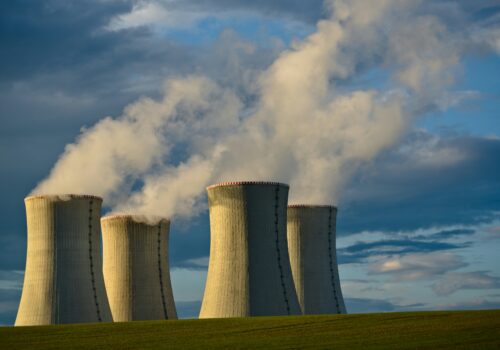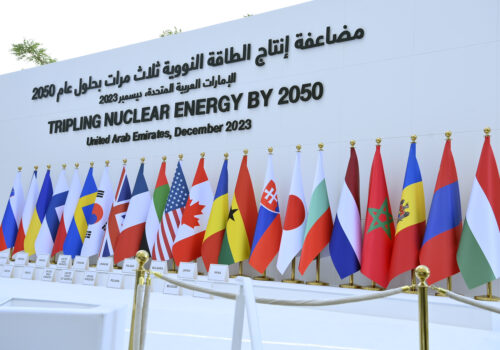The post Diddy trial live updates: Ex-assistant Mia questioned by defense in Sean Combs’s sex-trafficking case – The Washington Post first appeared on Trump News – trump-news.org.
Month: June 2025
Speaking during a press conference earlier in Poland, Ukrainian President Volodymyr Zelensky stated that today’s peace talks in Istanbul have now concluded, with the Ukrainian delegation and Russia exchanging documents regarding future prisoner exchanges. He adds that Ukraine… pic.twitter.com/zbgRO5Whko
— OSINTdefender (@sentdefender) June 2, 2025
The post RT by @mikenov: Speaking during a press conference earlier in Poland, Ukrainian President Volodymyr Zelensky stated that today’s peace talks in Istanbul have now concluded, with the Ukrainian delegation and Russia exchanging documents regarding future prisoner exchanges. He adds that Ukraine… first appeared on FBI Reform – fbireform.com.
Speaking during a press conference earlier in Poland, Ukrainian President Volodymyr Zelensky stated that today’s peace talks in Istanbul have now concluded, with the Ukrainian delegation and Russia exchanging documents regarding future prisoner exchanges. He adds that Ukraine… pic.twitter.com/zbgRO5Whko
— OSINTdefender (@sentdefender) June 2, 2025

Brooklyn’s most endearing flying spectacle returned to Dumbo on May 31, as thousands of tiny toy elephants parachuted from rooftops along Washington Street during the annual Dumbo Drop.
Hundreds of spectators filled the iconic cobblestone block between Front and Water streets, in the shadow of the Manhattan Bridge, for the sky-high extravaganza that raises money for Dumbo’s Title I public schools — P.S. 307 Elementary and The Dock Street School for STEAM Studies.
Tickets to the two shows, held at 5 p.m. and 7 p.m., were $15 per person and included a souvenir toy elephant — this year’s parachute was designed by artist Zeph Farmby — a guaranteed spot to view the drop, and an entry into the event’s prize sweepstakes.

Before the drop, ticket holders enjoyed live music from The Jelly, posed for photos at the Dumbo the Elephant photo booths, and sampled bites and drinks along the Taste of DUMBO restaurant row. The Brooklyn Diamonds showed off their dance drills, while the all-female drumming group Fogo Azul performed on the cobblestone street — now an Instagram hot spot — as toy elephants rained down around them.


The event also featured a free Dumbo Archway Party for all ages from 4 to 7 p.m., with a kids zone offering more than 20 activities, a free bouncy slide, a beer garden, and a bevy of Dumbo restaurants.
Brooklynites Dione and Scott Lomando had known about the event for years but always missed it. This year, they finally made it out for the “big day.”


“We wanted to do it for years and always find out the day after, the week after,” Scott said. “So, I’m just really, really happy that we were able to stumble upon it in time this year and get tickets.”
The couple had tickets for the 7 p.m. show and were looking forward to seeing thousands of toy elephants drop from the sky.
“I just love any kind of festivity like this,” Scott said. “[It’s an] excuse to be silly. It’s gonna be fun.”
Dione said she appreciated the fundraising aspect of the event.
“I work for an education access non-profit, and anything that has a focus on improving education outcomes in New York City, I’m very excited about,” Dione told Brooklyn Paper.
Annabelle Babilonia from Crown Heights attended the event to cheer on her seven-year-old daughter, Ava, a dancer with the Brooklyn Diamonds.
“It was beautiful. It was something different,” Babilonia said. “It was actually my first time being here. I never knew that they had a Dumbo Drop. Now I got introduced to something I had no idea about, and it was pretty cool.”


Alexandria Sica, president of the Dumbo Improvement District, told Brooklyn Paper the event was “near and dear” to her heart and had become a beloved neighborhood tradition.
“Where else would you see elephants flying through the sky?” Sica said. “Our most remarkable sight in all of Brooklyn is the Manhattan Bridge between these gorgeous old buildings. We use this event to benefit our local schools.”
Jenny Premon of Queens took the day off to attend the event after discovering it on social media.
“I just want to celebrate this moment because this is something so special,” Premon said. “It is so wonderful for this kind of event to help support the students. A lot of funding is cut, so this is a great opportunity for us to help contribute, be charitable, and have fun at the same time.”


The post Brooklyn’s ‘big day’: Crowds gather for annual Dumbo Drop, benefiting local schools first appeared on Audio Posts – audio-posts.com.

The world is entering a new age for nuclear energy, as developing nations like India, Argentina, Egypt, and Pakistan consider adding nuclear power to their energy mix to rapidly increase domestic energy access. Multilateral development banks (MDBs) are in a position to enable this expansion of energy in their mission to help developing economies achieve economic growth and energy access, but the banks are hindering the use of nuclear power. Meanwhile, Russia and China, both nuclear technology export leaders, are filling the gap and gaining geopolitical influence. Other countries, such as France and the Republic of Korea, have state-owned nuclear enterprises, but they are market competitors and not geopolitical adversaries. As developing nations seek nuclear power to meet rising energy needs, MDBs must revise their outdated and politicized views of the technology—or risk ceding political capital to autocratic actors.
STAY CONNECTED
Sign up for PowerPlay, the Atlantic Council’s bimonthly newsletter keeping you up to date on all facets of the energy transition.
hbspt.forms.create({
portalId: “43957839”,
formId: “24ff3c8d-107c-4647-87d7-525b2421c097”,
region: “na1”
});
An essential tool in the development toolkit
Developing countries’ energy demand is rising, requiring more firm power generation. Nuclear energy offers a reliable baseload critical for economies industrializing with energy-intensive sectors such as manufacturing and data centers. A 900-MW nuclear reactor can produce—with a much smaller footprint—the same power as 8.5 million solar panels or 800 wind turbines. And, unlike hydropower and geothermal energy, nuclear power is much less geographically constrained, enabling it to be sited in many locations.
Major economies are exporting their nuclear aversion
Currently, most MDBs do not fund nuclear energy projects. The Asian Development Bank (ADB) refuses to finance nuclear energy projects due to issues such as waste management and high investment costs. The European Bank for Reconstruction and Development (EBRD) prioritizes its energy strategy for “scaling up renewables,” supporting nuclear projects solely in areas of safety like decommissioning, with no involvement in construction. EBRD states it is neither in favor of or opposed to nuclear energy; it is simply operating within the mandate determined by its shareholders. The World Bank—the largest and arguably most influential MDB—cites a lack of expertise as its reason for not funding nuclear energy projects, although it frequently relies on external contractors for expertise in other sectors.
However, the World Bank’s president, Ajay Banga, recently signaled a potential shift by pushing the board to reconsider its stance on funding nuclear energy projects. In reality, the World Bank’s voting structure, which allocates voting power according to how much funding a country provides, grants its biggest funders with veto power. Germany serves as a key example: it shut down its nuclear reactors and opposed the inclusion of nuclear power in the European Union’s green investment taxonomy. The World Bank is held hostage by this tunnel vision, which supports only renewable projects, even though these technologies alone cannot meet the growing energy demands of developing nations.
MDBs’ refusal to fund nuclear power projects exacerbates the geopolitical divide between developing economies and the developed nations. This results in missed opportunities to expand energy access in poorer nations based on the prejudices of wealthier nations.
Lenders of last resort
MDBs’ current failure to finance nuclear projects cedes opportunities to other lenders. Western banks, including Goldman Sachs and Barclays, recently announced their support for nuclear energy, but this long-term commitment is questionable given private lenders’ risk-averse nature. Prolonged construction timelines and high capital costs for nuclear energy projects in countries like the United States may eventually deter commercial banks from maintaining their support for the technology.
Russia and China could fill the gap if the West leaves nuclear financing to others. Russia leads global nuclear power plant construction, accounting for about 60 percent of reactor exports, with ongoing projects in nations like Turkey, Bangladesh, and Egypt. Similarly, China is rapidly building out its domestic nuclear capacity—targeting over 100 new reactors by 2035—and leveraging the technology as a geopolitical tool under its Belt and Road Initiative, establishing projects in nations such as Pakistan and Argentina.
The MDBs’ absence in nuclear financing starkly contrasts with the generous loans offered by Russia and China. By leveraging state funding, Russia offers highly attractive terms, covering up to 85 percent of total project costs, as seen in Egypt’s loan, with lower interest rates and longer repayment periods than those required by the Organisation of Economic Co-operation and Development (OECD) for its members—an organization that does not include Russia or China. Russia is also expanding its equity stakes in international nuclear projects, such as Turkey’s Akkuyu nuclear power plant, where it holds a majority stake, fostering closer geopolitical ties and exerting influence over critical energy infrastructure.
Similarly, China extends significant financial support, covering 85 percent of construction costs for Pakistan’s Chasma 5 reactor along with a $100 million discount on the total project cost. China has also offered to cover 85 percent of costs in loans for Argentina’s Atucha III reactor.
By refusing to finance nuclear projects, MDBs force developing nations to rely on Russian and Chinese nuclear exports. Both nations’ dominance in nuclear energy exports risks creating significant geopolitical imbalances, expanding their grip on critical energy sources while weakening Western influence over international energy security. The MDBs must rectify this problem to ensure a more geopolitically diverse financing model for nuclear power construction and operation in developing nations.
Breaking the logjam
MDBs must consider structural changes to bypass the veto power of its major players and begin funding nuclear energy projects. One option is to create a consortium of pro-nuclear states within the MDBs. These nations could create a separate fund for nuclear energy financing, independent of contributions from anti-nuclear nations. This would not be a complete fix—the bank’s broader policy against nuclear finance would remain unaffected—but it’s a crucial step in the right direction.
Outside of direct financial support, development banks do have other options. They can establish pathways for technical assistance for nuclear projects, similar to the Energy for Growth Hub’s nuclear trust fund proposal for the World Bank. This can include enlisting expert contractors as advisors to governments building nuclear power plants and fostering open dialogues on nuclear energy. By taking these steps, development banks can empower developing nations to harness nuclear power and create a more equitable energy future.
Don’t hand adversaries a nuclear victory
The increasing dominance of Moscow and Beijing in global nuclear energy finance risks reshaping future energy affairs. It is time for MDBs to acknowledge nuclear energy as an essential tool to expand energy access. The World Bank and other multilateral organizations must reform their antiquated policies to support nuclear energy deployment and allow developing countries to more readily achieve economic growth. If they don’t, autocratic regimes willing to weaponize their energy dominance will eagerly fill the void.
Juzel Lloyd is an energy/environmental technology researcher at the Lawrence Berkeley National Laboratory and a former Atlantic Council Global Energy Center Women Leaders in Energy and Climate fellow.
MEET THE AUTHOR
RELATED CONTENT

New Atlanticist
May 25, 2025
What Trump’s new executive orders mean for the US nuclear energy industry
By
Jennifer T. Gordon
The US president signed four executive orders on May 23 intended to usher in an “American nuclear renaissance.”

EnergySource
Mar 7, 2025
The US can reduce Russia’s nuclear energy—and geopolitical—influence
By
Marina Lorenzini
As the Trump administration outlines its energy priorities, strengthening the US nuclear industry remains a point of bipartisan agreement. Revitalizing this sector will lead not only to domestic economic growth, but also a reduction in Russia’s dominance in global nuclear markets and its geopolitical leverage.

EnergySource
Jan 15, 2025
Tripling global nuclear energy capacity is in reach—if the world seizes the moment
By
Amy Drake
At COP28, nations and corporations committed to tripling global nuclear energy capacity by 2050, underscoring its essential role in achieving net-zero emissions. Looking ahead to COP30, global leaders must strengthen multilateral collaboration, engage the financial sector, and provide support for new partnerships with the nuclear industry to meet this goal.
OUR WORK

The Global Energy Center develops and promotes pragmatic and nonpartisan policy solutions designed to advance global energy security, enhance economic opportunity, and accelerate pathways to net-zero emissions.
The post MDBs must finance nuclear power—or Russia and China will appeared first on Atlantic Council.
The post MDBs must finance nuclear power—or Russia and China will first appeared on Audio Posts – audio-posts.com.
Тем временем Соловьёв призывает расстреливать российских солдат-срочников. Путинская пропаганда уже даже не скрывает ненависть к своему народу. pic.twitter.com/mcViYoJEsS
— Илья Яшин (@IlyaYashin) June 2, 2025
The post RT by @mikenov: Тем временем Соловьёв призывает расстреливать российских солдат-срочников. Путинская пропаганда уже даже не скрывает ненависть к своему народу. first appeared on FBI Reform – fbireform.com.
Тем временем Соловьёв призывает расстреливать российских солдат-срочников. Путинская пропаганда уже даже не скрывает ненависть к своему народу. pic.twitter.com/mcViYoJEsS
— Илья Яшин (@IlyaYashin) June 2, 2025
Today, at the Presidential Palace, I held a meeting with Mr. Alejandro Hajdenberg, Head of the International Monetary Fund (IMF) Mission; Mr. Jeroen Klik, Executive Director of the IMF; and Mr. Andrew Jewell, the IMF’s Resident Representative in Georgia.
We discussed the… pic.twitter.com/f8e4OYV2ng
— Mikheil Kavelashvili (@GeoPresident_) June 2, 2025
The post RT by @mikenov: Today, at the Presidential Palace, I held a meeting with Mr. Alejandro Hajdenberg, Head of the International Monetary Fund (IMF) Mission; Mr. Jeroen Klik, Executive Director of the IMF; and Mr. Andrew Jewell, the IMF’s Resident Representative in Georgia. We discussed the… first appeared on FBI Reform – fbireform.com.


